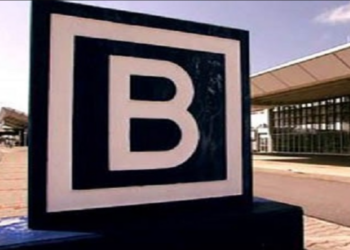JBERGER has continued its bullish run this year sparking concern among investors about whether to buy, hold or sell the stock.
Year to date, JBerger has surged by 53.49%, representing about 71% of its gain throughout 2023.
Beyond its short-term performance, JBerger boasts a commendable track record over the long haul. Over five years, its share price has climbed from N18.23 in 2019 to N66 as of the close of trading on Thursday, March 28, 2024.
Investors may view the bullish trend for JBerger, with strong gains in the short term and substantial growth over the long term, as a sign of a healthy company with potential for continued growth and as such a compelling investment case.
However, Julius Berger’s revenue growth of 1.17% YoY in 2023 below its five-year compound annual growth rate of 11% might create doubt about the company’s ability to sustain the growth.
While one year of slower growth is noteworthy, it’s essential to consider the company’s long-term performance and potential. A single year’s figure does not necessarily define a trend.
Moreover, profit growth in 2023 is striking surpassing its five-year growth rate driving earnings per share to N7.96, representing an impressive 61% YoY increase.
The balance sheet reflects a healthy financial position as indicated in its net cash position. JBERGER’s cash exceeds its total debt, indicating a favourable liquidity position.
This suggests financial strength and stability, which can instill confidence in investors regarding the company’s ability to manage debt obligations, invest in growth initiatives, and navigate economic uncertainties effectively.
That said, the crucial consideration lies in the company’s ability to maintain its growth trajectory. The commendable 61% YoY growth in earnings per share can be credited to a substantial increase in interest income, which surged by 489.5% in 2023, marking the highest growth in five years.
The exceptional rise in interest income suggests that the company has benefited from the current interest rate environment.
With its robust project portfolio and diversified operations and revenue streams, coupled with less reliance on debt financing, as indicated by its low debt-to-equity ratio of 3.31% and debt-to-asset ratio of 0.52%, one could argue that the company is well-positioned to capitalize on market dynamics to sustain its growth trajectory.
However, there is a need for the company to address its cost efficiency. Its profitability ratios reveal a relatively low-profit margin, with a 5-year average gross profit margin of 19.01% and a net profit margin of 3.9%. This indicates significant costs associated with sales and operating expenses in relation to its revenue.
Albeit a crucial consideration for investors is determining the appropriate value at which to buy or hold JBERGER, alongside assessing market perception and total return.
At its current trailing twelve-month (TTM) earnings per share of N7.96, JBERGER trades at an earnings multiple of 8.29x. This valuation metric is notably lower than the average trailing ratio of 28x observed in the construction real estate sub-sector.
A lower earnings multiple compared to the sub-sector average suggests that JBERGER may be undervalued relative to its peers.
Jberger’s price-to-book (P/B) ratio of 0.99 indicates that the company’s stock is trading at a price below its book value per share.
This suggests that investors are paying less for each unit of book value, which could be perceived as an attractive valuation metric.
A P/B ratio below 1 typically implies that the stock is undervalued relative to its book value.
Additionally, the fact that the stock is currently trading at a 10% discount from its 5-year high reached on March 18, 2024, suggests a potential for the stock price to appreciate. This presents an encouraging scenario for potential investors.
As a dividend-paying stock strengthens investment appeal. The company has paid dividends consistently over the past five years and currently offers a yield of 5.81%.
With its reasonable payout ratio of 50%, JBERGER’s dividends are well covered by earnings, and with the surge in earnings, it is expected that it will maintain its dividend payout trend.
Overall, the decision to buy, hold, or sell JBERGER shares depends on individual investor preferences, risk appetite, and investment objectives.
As always, investors are advised to conduct thorough research and seek professional financial advice before making any investment decisions.





















